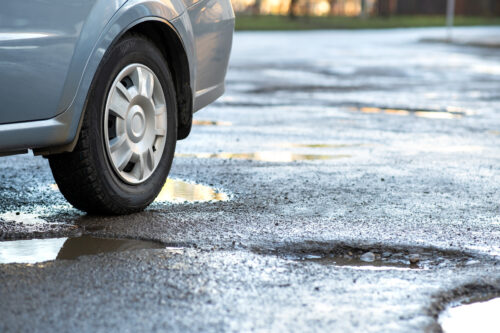In California, where highways are often congested, and the pace of traffic is fast, car accidents on these major roadways can result in severe injuries and complex disputes over liability and compensation. The state’s highways see a substantial number of accidents each year, contributing to a high rate of personal injuries and fatalities. Understanding who is at fault in these situations involves navigating California’s detailed traffic laws and liability rules, which can significantly influence the outcome of compensation claims.
For those injured in highway accidents in places like Lancaster, California, it is crucial to take the right steps immediately following the incident to protect your legal rights and maximize your potential compensation. This includes gathering evidence at the scene, obtaining witness statements, and seeking medical attention for injuries. When you contact a seasoned legal professional who specializes in highway accident cases, you get the necessary guidance and advocacy needed to navigate the often complex legal proceedings.
Understanding Liability in Highway Car Accidents
Determining liability in a highway car accident is crucial for seeking compensation. In general, liability refers to legal responsibility for an incident or the consequences of it. Establishing liability involves identifying who was at fault or negligent in causing the accident. Several factors are taken into account when determining liability in a car accident:
Negligence
Negligence occurs when someone fails to act with reasonable care, causing harm to another person. To prove negligence in a highway car accident case, it must be established that one party owed a duty of care to others on the road but breached that duty, directly causing the accident and resulting in injuries.
Traffic Laws
Violation of traffic laws can play a significant role in determining liability. Drivers must follow speed limits, yield right-of-way, obey traffic signals and signs, and maintain safe distances from other vehicles. If a driver does not adhere to these rules and causes an accident, they may be found liable.
Recklessness or Intentional Conduct
In some cases, accidents occur due to reckless behavior or intentional conduct by one party involved in the collision. This may include driving under the influence of alcohol or drugs or aggressive driving behaviors such as excessive speeding or tailgating.
Establishing Damages
To seek compensation for injuries sustained in a highway car accident caused by another party’s negligence, it is essential first to establish damages. Damages may include medical expenses, pain and suffering, lost wages due to inability to work, emotional distress, property damage, and any future medical costs.
Seeking Compensation for Highway Car Accident Injuries
After an accident, it is vital for victims to pursue compensation for their injuries and other losses. Here are some steps to take:
Seek Medical Attention
The first step is to seek medical attention for any injuries sustained in the accident. Even if injuries seem minor initially, some conditions may manifest later. Prompt medical care not only ensures your well-being but also provides crucial documentation of the injuries.
Preserve Evidence
Collect and preserve evidence related to the accident and your injuries, such as photographs of the accident scene and damages, eyewitness statements, police reports, and medical records.
Consult an Attorney
It is highly recommended to consult a personal injury attorney experienced in highway car accidents. They can guide you through the legal process, evaluate your case’s strengths, negotiate with insurance companies on your behalf, and fight for fair compensation.
File Insurance Claims
Notify your insurance company about the accident promptly and accurately and provide all relevant details. Additionally, if it was determined that another driver was at fault in causing the accident, you may file a claim with their insurance company as well.
Pursue Legal Action
If negotiations with insurance companies do not result in a fair settlement or they deny your claim outright, you may choose to pursue legal action by filing a lawsuit against the at-fault party. An attorney will be able to navigate this process skillfully on your behalf.
Liability in Multiple-Vehicle Highway Car Accidents
One common scenario on highways is multiple-vehicle accidents, also referred to as chain reaction crashes. These accidents can make determining liability more complex, as several parties may be involved. In such cases, various factors are taken into consideration:
Proximity to the Accident
The position of the vehicles involved in a multiple-vehicle accident is integral in determining liability. Typically, the initial impact is crucial in establishing fault. However, it’s important to note that liability can extend beyond the vehicle that directly caused the collision if other drivers were unable to avoid the accident due to negligence or following too closely.
Contributory Negligence
Contributory negligence arises when more than one party shares responsibility for causing an accident. In some states, if a driver is found partially at fault for an accident, their compensation may be reduced or even eliminated altogether based on comparative negligence laws.
Conclusion
Highway car accidents can have life-changing consequences for victims and their families. Understanding liability and seeking fair compensation are crucial elements of recovering from these unfortunate incidents. By focusing on liability factors such as negligence or violating traffic laws and taking prompt action such as seeking medical attention and consulting with an attorney, victims can better navigate the legal process towards obtaining rightful compensation for their injuries and losses incurred due to highway car accidents.






